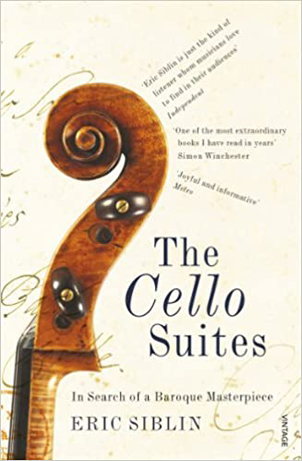There are few people who do not know who Pau Casals (usually known in English by his Spanish name Pablo Casals) was, but it is very easy to find people who, having heard about him, have not grasped the real size of the character. Making a little effort to get to know Pablo Casals better is something that needs to be done for himself, and for the people who don’t know him at all yet.
Pablo Casals died on October 22, 1973 to be exact, and Catorze paid tribute to him a few days ago by remembering his (improvised) speech, “I’m a Catalan” when in 1971 he received the Medal of Peace of the UN.
In 2014, the spanish TV2 channel, dedicated an episode of “Imprescindibles” program to Pau Casals.
The piece, however, corresponding to his speech at United Nations headquarters on receiving the Peace Medal is not included in the documentary, probably for political reasons, so I leave it here:
Apart from his militancy for peace, his international projection has a lot to do with his most important legacy, the rediscovery of the music sheet of the Suites for cello by J.S. Bach by chance, in a music store on Ample street in Barcelona, and its subsequent recording and diffusion.
Quebecois music journalist Eric Siblin, who came to feel these suites, will decide to investigate them thoroughly, and in 2009 he will publish “The Cello Suites: In Search of a Baroque Masterpiece“. Available also in spanish: “Las Suites para violonchello. En busca de Pau Casals, J.S. Bach y una obra maestra” (Turner, 2011). A book that weaves a common thread from the cello suites, its great author, the composer Johann Sebastian Bach, and its discoverer Pau Casals. (Núria Maynou spoke to us on the “Núvol”).
In 2012, the film “A Late Quartet” paid tribute to Casals with an anecdote of one of his classes explaining us what to value in a musical piece interpretation, beyond the quality of his performance.
The history is real, the screenwriters didn’t invent it, they took it out (even copying sentences) from the autobiography of cellist Gregor Piatigorsky.
The history explained by Piatigorsky:
“……Mr. Casals.” I was introduced to a little bald man with a pipe. He said that he was pleased to meet young musicians such as Serkin and me. Rudolf Serkin, who stood stiffly next to me, seemed like myself, to be fighting his diffidence. Rudi had played before my arrival, and Casals now wanted to hear us together. Beethoven’s D-Major Sonata was on the piano. “Why don’t you play it?” asked Casals. Both nervous and barely knowing each other, we gave a poor performance that terminated somewhere in the middle.
“Bravo! Bravo! Wonderful!” Casals applauded. Francesco brought the Schumann Cello Concerto, which Casals wanted to hear. I never played worse. Casals asked for Bach. Exasperated, I obliged with a performance matching the Beethoven and Schumann.
“Splendid! Magnifique!” said Casals, embracing me.
Bewildered, I left the house. I knew how badly I had played, but why did he, the master, have to praise and embrace me? This apparent insincerity pained me more than anything else.
The greater was my shame and delight when, a few years later, I met Casals in Paris. We had dinner together and played duets for two cellos, and I played for him until late at night. Spurred by his great warmth, and happy, I confessed what I had thought of his praising me in Berlin. He reacted with sudden anger. He rushed to the cello, “Listen!” He played a phrase from the Beethoven sonata. “Didn’t you play this fingering? Ah, you did! It was novel to me…it was good… and here, didn’t you attack that passage with up-bow, like this?” he demonstrated. He went through Schumann and Bach, always emphasizing all he like that I had done. “And for the rest,” he said passionately, “leave it to the ignorant and stupid who judge by counting only the faults. I can be grateful, and so must you be, for even one note, one wonderful phrase,” I left with the feeling of having been with a great artist and a friend.
In September 2017, the catalan TV3 channel dedicated a “Sense Ficció” to Pablo Casals, I imagine to advertise the film “Pau, la força d’un silenci” about his life was about to be released.
Both documentaries one in spanish and the other one in catalan are similars, but at same time, they are still complementaries.
As TV’s have a tendency to periodically delete documentaries, if someone want to see it and the link doesn’t work, you can download it here:
From a not so pacifist perspective like that of the Casals one, speaking of his efforts to disseminate music and peace, I always remember the anecdote of Winston Churchill’s response during the Second World War when he was claimed to withdraw the cultural budget but dedicate it to military expenses, angry, Churchill, answered: Withdraw the cultural budget? So why we fight!)
Visit the post Pau Casals quotes at 3peusdegat


